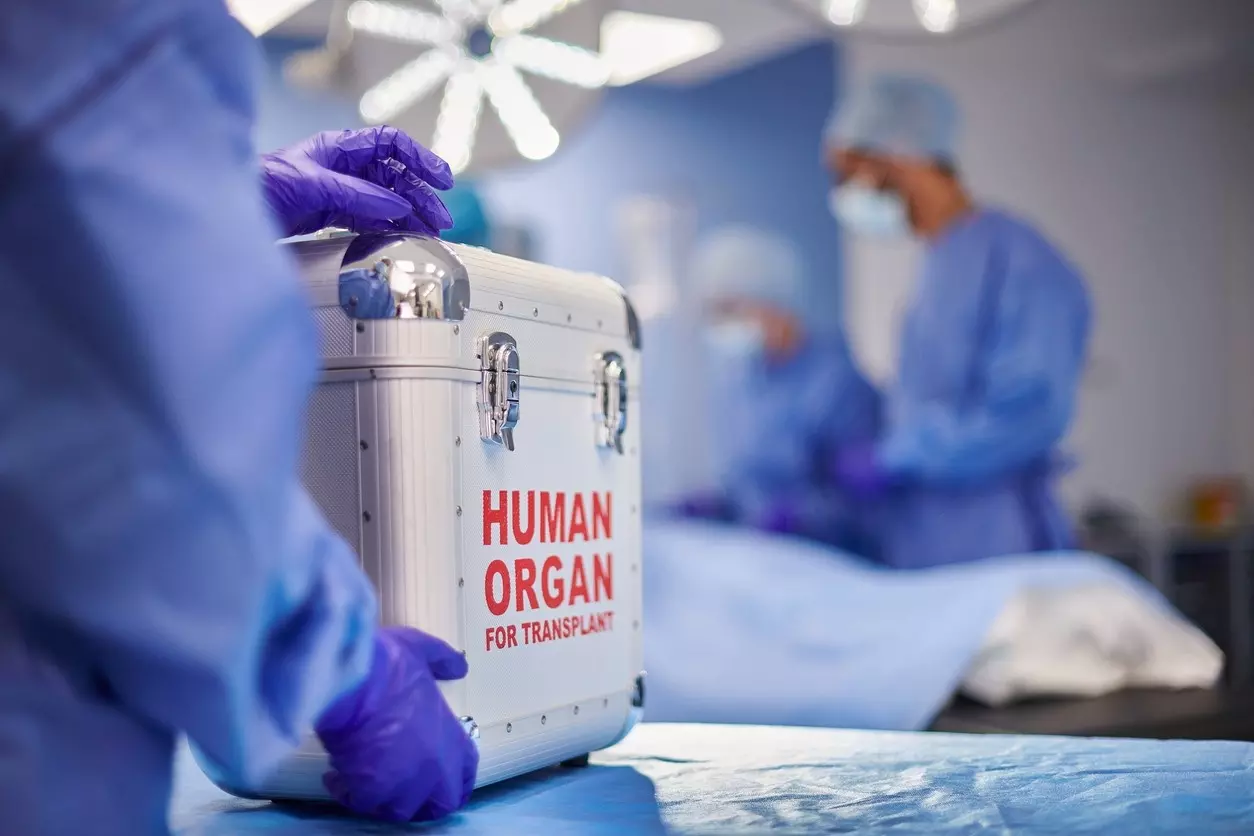
Amid the allegations of illegal human organ trade in Tamil Nadu, a senior health official said the revamped system balances patients’ urgent medical needs with robust protections against exploitation. | Representative Image: iStock
Tamil Nadu revamps organ transplant framework amid kidney sale allegations
The state's health department confirmed restructuring of state and district-level committees to combat illegal organ trade and restore public trust

In the wake of allegations of illegal trade of human organs, including kidneys, in Tamil Nadu, the state government has revamped its organ transplant authorisation framework by reconstituting (organ transplant) authorisation committees across the state to restore public trust and tighten regulations. The goal is to ensure ethical practices under the Transplantation of Human Organs and Tissues Act, 1994.
Last week, an order issued by the state health department confirmed restructuring of state- and district-level committees after a deluge of complaints came up, including about forged documents and broker involvement. The situation also saw the cancellation of the licences of at least two hospitals.
P Senthilkumar, the state’s health and family welfare secretary, said the revamped system balances patients’ urgent medical needs with robust protections against exploitation. The new framework introduces multi-disciplinary oversight and mandatory verification to enhance transparency and accountability, addressing longstanding issues in the organ donation ecosystem.
Also read: Namakkal kidney racket exposes gaps in TN transplant regulation
The state-level authorisation committee, chaired by the Director of Medical Education and Research, Dr R Suganthy Rajakumari, has been re-constituted, and the panel also includes deans of Stanley Medical College and Government Kilpauk Medical College, senior police officers, a woman doctor nominated by the Indian Medical Association (IMA), and representatives from the Directorate of Medical and Rural Health Services.
Unrelated donor cases, often linked to illegal trades, will face intensified scrutiny, including assistance from police or revenue departments whenever suspicions arise. Non-profit organisations will now conduct mandatory counselling sessions to educate and protect potential donors from undue pressure.
The role of the committee is to review applications for transplants, particularly for foreign nationals and out-of-state patients, while overseeing district-level bodies to ensure consistent enforcement.
While Tamil Nadu already had a system to review the live organ-donation system, the incidents of kidney sale have come as a shock.
Also read: TN govt suspends transplant licenses of two hospitals over kidney sale racket
IMA members in panels
Dr J Amalorpavanathan, convener of Tamil Nadu’s Cadaver Transplant Programme, told The Federal that the reconstituted committees include medical professionals, such as members of the IMA, to strengthen oversight.
“This is a welcome move as it would improve the monitoring of the organ-donation system and help prevent irregularities. It would also help ensure transparency in the system,” he said.
To enhance localised scrutiny, four regional district-level committees have been established in Chennai (for the northern region), Thanjavur (central region), Coimbatore (western region) and Madurai (southern region).
Also read: Seven common habits that could be giving you kidney trouble
Each committee is led by the dean of the local government medical college and includes senior doctors, district administration officials, senior police officers, and IMA-nominated women doctors.
Goal to curb illegal practices
The new committees have been instituted with stringent protocols to combat illegal practices. For related donors, familial ties must be verified through authenticated documents, with checks to rule out coercion.
Unrelated donor cases, often linked to illegal trades, will face intensified scrutiny, including assistance from police or revenue departments whenever suspicions arise. Non-profit organisations will now conduct mandatory counselling sessions to educate and protect potential donors from undue pressure.
Also read: Pope Francis critical with early kidney failure, but remains alert
'Documents to be double checked'
“Previously, hospitals verified familial relationships, but now the committees will double-check documents. While this enhances transparency, genuine patients may face delays due to rigorous verification. Some rackets bypass the committee entirely, so it remains to be seen how effectively these reforms prevent irregularities and impact the system,” added Dr Amalorpavanathan.
To prevent misuse, the authorised hospitals are now required to submit monthly reports detailing transplant applications and outcomes, accompanied by a processing fee of Rs 2,000 per application, half of which supports administrative monitoring.
Speaking to The Federal on condition of anonymity, a former secretary of the Transplant Authority of Tamil Nadu (TRANSTAN) highlighted the role of middlemen in illegal kidney sales, often enabled by doctors and paramedics.
Also read: Surgeon salutes brain-dead man whose organs saved 6 lives
'Committees alone not enough'
A multidisciplinary approach is essential to tackle this holistically,” the former official said, stressing the high demand for kidneys and the exploitation of vulnerable individuals."Committees alone are not enough if not monitored effectively. District committees existed to prevent irregularities but failed, so their reach must be assessed, and beyond their constitution, they should also be thoroughly verified."

